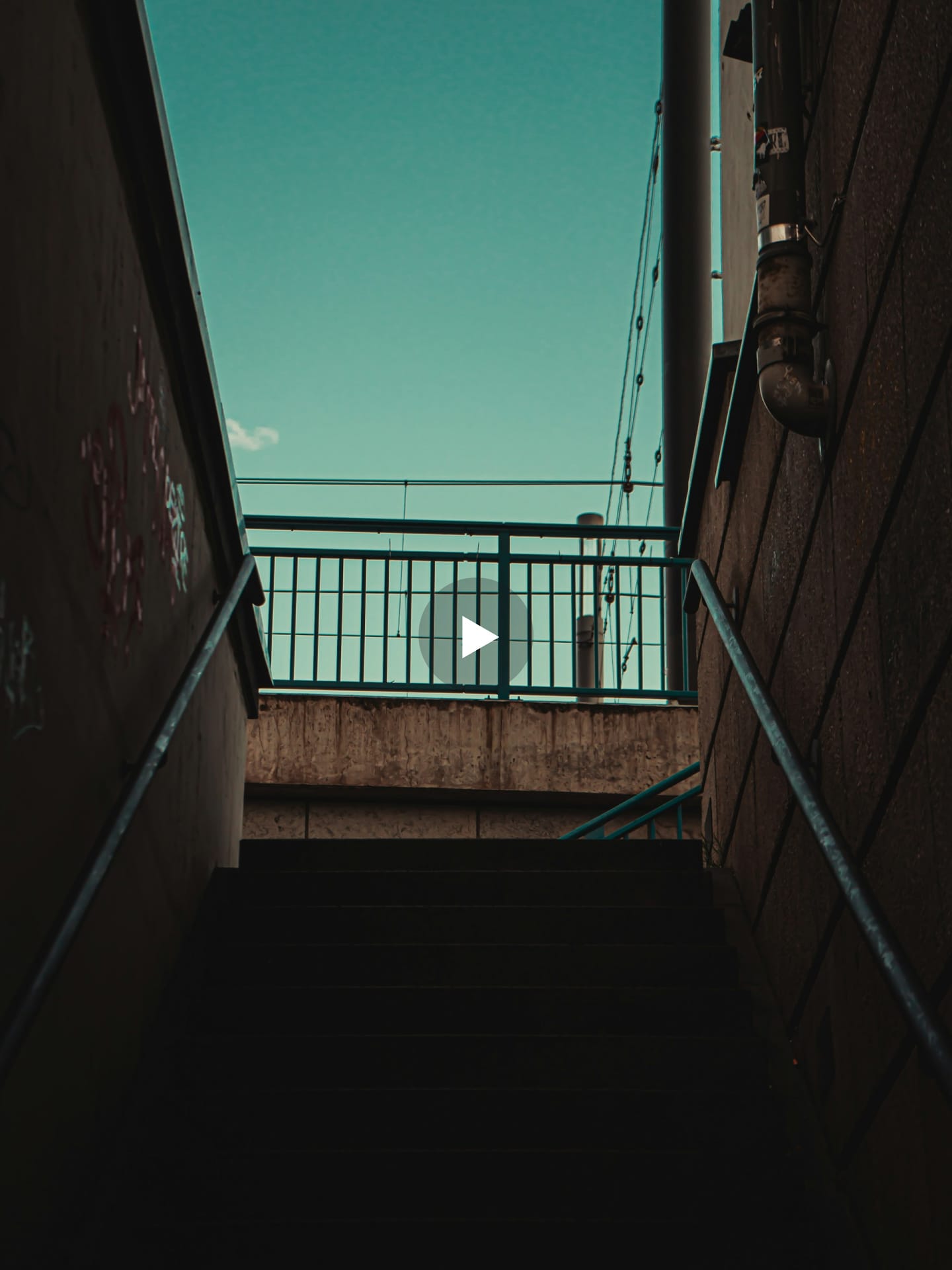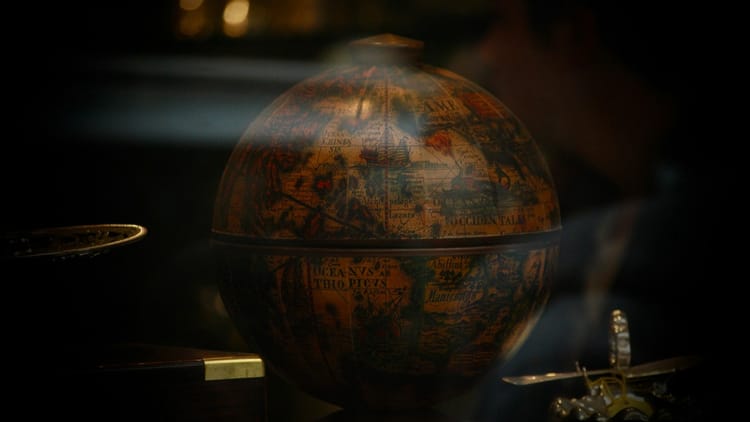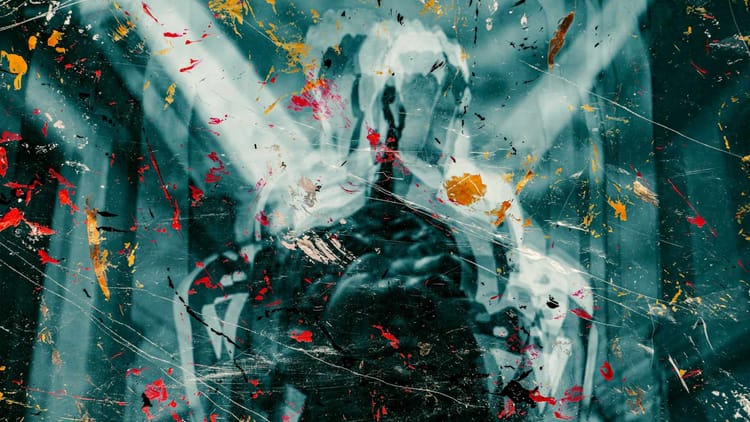Above ground and beneath

Recently: Does the Chinese Communist Party really control TikTok? Emile Dirks on how it’s just like any other social-media platform—and isn’t.
Today: Israel launches its ground offensive into Gaza City. The U.S. strikes a second Venezuelan “drug boat.” American prosecutors charge Charlie Kirk’s suspected killer with murder. U.S. Attorney General Pam Bondi threatens to prosecute “hate speech.” & The Taliban bans fiber-optic internet in Afghanistan.
+ John Jamesen Gould on how the United Arab Emirates got a $2 billion crypto deal with the Trump family business—and access to America’s most advanced AI chips.
& New music from A Sagittariun ...
The streets and tunnels of Gaza City
Israeli forces launched a ground offensive targeting Gaza City early Tuesday, with Defense Minister Israel Katz declaring “Gaza is burning” as two divisions moved toward the city center.
The assault began hours after a UN commission concluded Israel was committing genocide in Gaza—findings Israel rejected as “falsehoods”—and on the same day when Secretary of State Marco Rubio departed Israel for Qatar to try to contain considerable anger over last week’s Israeli strike against Hamas leaders in Doha for negotiations.
Israeli military officials describe Gaza City as “the central hub of Hamas’s military and governing power,” and estimate 2,000 to 3,000 Hamas militants remain there, enabled in combat by Hamas’s tunnel network that’s been one of the defining elements of this war.
Hamas has spent more than $1 billion constructing what Israeli forces call the “Gaza metro”—350 to 450 miles of tunnels connecting weapons caches, command centers, and rocket launching positions throughout the city. The network extends beneath civilian structures, including schools, hospitals, and mosques, with more than 5,000 separate shafts leading underground, presenting a challenge military analysts describe as unprecedented in urban warfare.
What emerges is a strategy that’s putting a premium on seizing above-ground control while the underground network largely persists—leaving unclear whether Israel views occupation as a temporary military necessity or has broader territorial aims.
At the same time, the operation risks forcing Israel into direct military rule over Gaza’s 2 million people, a prospect even Israeli security chiefs have advised against, warning it could create an indefinite occupation with no clear exit strategy, as well as endanger remaining hostages.
In the meantime, Israel has ordered the Gaza City metropolitan area’s approximately one million residents to evacuate to the coastal Mawasi area, where aid agencies describe conditions dire—with families living in overcrowded conditions and lacking basic necessities like food, drinking water, and medicine. It’s a situation that appears to risk a massive further humanitarian catastrophe while introducing yet more vectors of potential chaos in the war.
The question governing the situation now seems to be whether Israel can achieve objectives through military occupation that it couldn’t accomplish through two years of devastating warfare—or whether the operation reflects more the absence of any other viable strategy.

Meanwhile
- U.S. President Donald Trump said, “I don’t know too much about it,” in reference to the ground offensive into Gaza City—commenting instead on the tactics of the Islamic Resistance Movement: “Hamas is using the old human shield deal. If they do that, they’re in big trouble.”
- Trump also announced, on Monday, that a second U.S. military strike on alleged Venezuelan drug boats had killed three people, even as officials acknowledged the first boat was heading back to shore when attacked: “These extremely violent drug trafficking cartels POSE A THREAT to US National Security, Foreign Policy and vital US Interests.”
- Utah prosecutors have formally charged Tyler Robinson, the suspected killer of the American political activist Charlie Kirk, with seven counts, including aggravated murder—while administration representatives and Congressional Republicans continue to threaten action against “left-wing extremism” (which Robinson appears not to represent), as well as people who might disparage Kirk.
- According to U.S. Attorney General Pam Bondi: “There’s free speech and then there’s hate speech, and there is no place, especially now, especially after what happened to Charlie, in our society. We will absolutely target you, go after you, if you are targeting anyone with hate speech.” Prominent conservatives have been among those responding that this statement is simply wrong with respect to the U.S. Constitution’s First Amendment.
- & The Taliban’s supreme leader Hibatullah Akhundzada has banned fiber-optic internet in Afghanistan’s Balkh province to “prevent immorality”—the first such restriction since the group regained power in 2021, leaving government offices and homes without Wi-Fi: “This measure was taken to prevent immorality, and an alternative will be built within the country for necessities.”

Hungry for an alternative to dystopian anger? Join a gathering of code breakers, hackers, and puzzle solvers. You’ll leave optimistic—we promise.
The art of the deal
How did the U.A.E. get a $2 billion crypto deal with the Trump family business—and access to America’s most advanced AI chips? Ben Freeman, Miranda Patrucić, Justin Callais, and Josh Rudolph on the global weaponization of kleptocratic wealth.
A remarkable investigation published by The New York Times on Monday shows how enterprise is developing between one of the world’s richest autocracies and the world’s single most powerful democracy. It’s complex, but there’s a clarifying word we can start with: corruption.
In May, World Liberty Financial—a cryptocurrency company founded by the Trump and Witkoff families—secured a $2 billion investment from Sheikh Tahnoon bin Zayed Al Nahyan, the brother of the United Arab Emirates’ president who controls the Gulf state’s, yes, $1.5 trillion sovereign wealth fund. Two weeks later, the White House agreed to give the Emirates access to hundreds of thousands of advanced artificial-intelligence computer chips, technology crucial for AI development that had been restricted under U.S. export controls.
The investigation documents how Steve Witkoff, U.S. President Donald Trump’s Middle East envoy and longtime golfing partner, advocated for the chip deal while his family business stood to benefit from the crypto investment. David Sacks, Trump’s AI and cryptocurrency czar and a Silicon Valley venture capitalist, played a central role in the chip negotiations despite his own tech-industry investments and connections to Gulf money. A senior executive at G42—Sheikh Tahnoon’s sprawling AI company—simultaneously worked for World Liberty Financial, creating direct links between the two firms as the Emiratis pushed for chip access.
White House officials deny any explicit connection between the deals, calling the crypto transaction “totally unrelated to any government business.” They point to ethics waivers and ongoing divestment processes. The U.A.E. emphasizes its rigorous protocols and commitment to preventing American technology transfer to China or other unauthorized parties. Yet three attorneys the Times interviewed, who specialize in public-integrity law, called the back-to-back deals a violation of longstanding American norms—while even some Trump administration officials themselves expressed alarm about the conflicts of interest.
What they’re describing isn’t a typical corruption case involving gold bars and stuffed envelopes or the kind of clumsy bribery that lands greedy officials in handcuffs, either. It’s something more sophisticated and troubling—the flow of autocratic money adapting to a governing style that’s already broken down the boundaries between personal enrichment and public power.
How is that happening?
This case belongs to a global pattern our recent print extra Altered States explores in depth: Around the world, kleptocratic regimes are weaponizing their wealth to subvert democracies. That’s not always—and in the U.S., it’s not mostly—by breaking the law; more and more, it’s by exploiting democratic systems’ legal frameworks and institutional structures. These guys have learned that the most effective way to corrupt a democracy isn’t to break its rules but to make its rules work for them …
+ Read John Jamesen Gould on what’s ahead at The Signal … & Hywel Mills, with an update on our migration to Ghost.
Membership with The Signal means access to a suite of benefits, including: all new articles, our complete archive, our cultural-intelligence briefing, and the member’s despatch—our weekly current-affairs roundup for people who want to keep up with what’s happening in the world and need to spend their time carefully.
It also means playing crucial role in backing a distinctive, independent new enterprise in current-affairs journalism.
‘Venus Flytrap’






